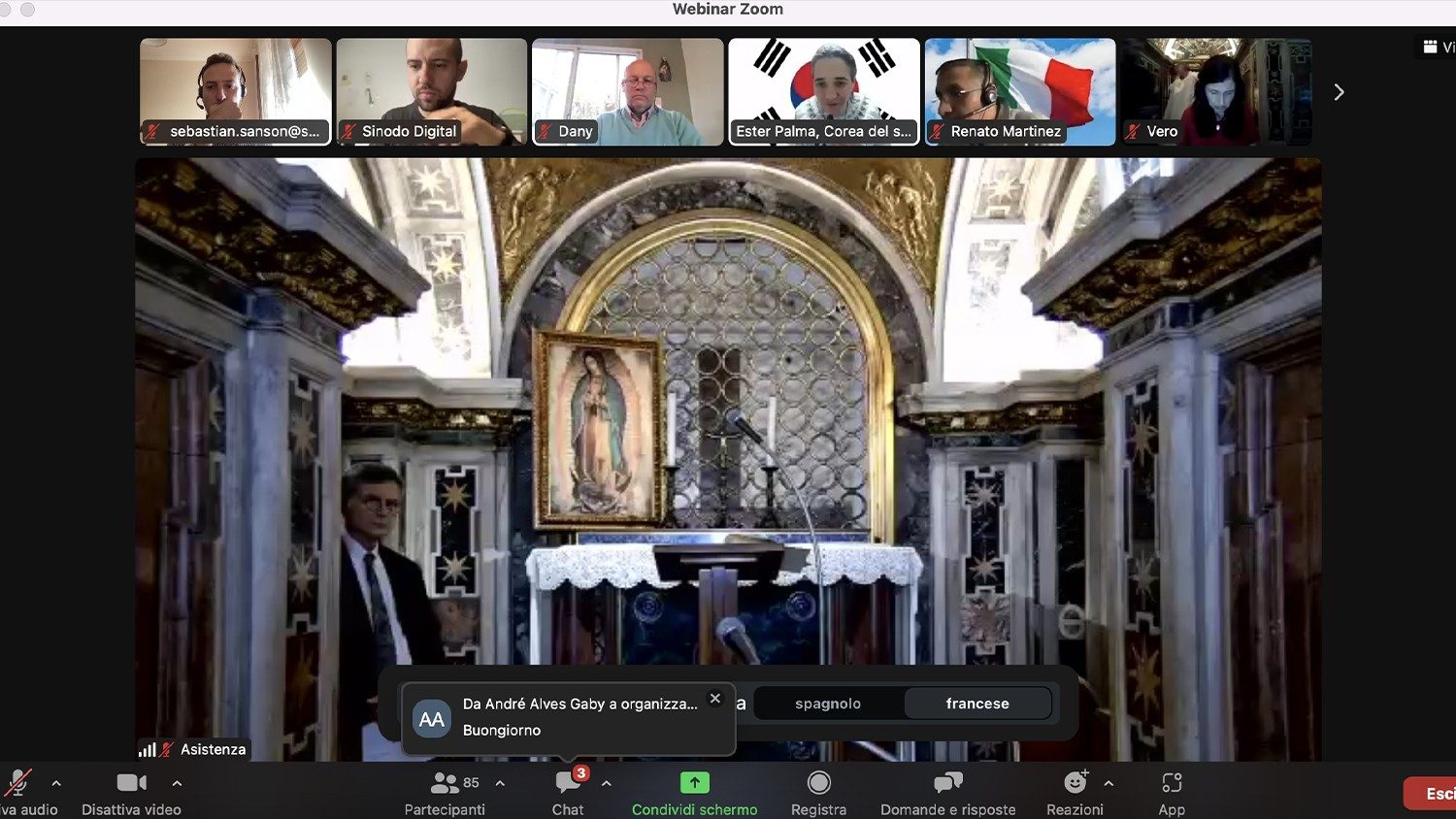A “digital synod on synodality,” which has been promoted by the Vatican’s Dicastery for Communication, has already reached an estimated 20 million people, including non-Catholics and non-believers.
“One of the realities that we have now in the Church is the existence of a new technology,” said Filipino priest Jeffrey Segovia, adding that “we also have to admit is the presence of those in the digital media.”
“Behind all the profiles, the clicks, the likes and the follows, are real persons,” said the priest.
In an interview with Vatican News on the sidelines of the Asian continental assembly of the synodal process in Thailand last week, Father Segovia stressed the importance of holding “synodal conversations” in the “digital realm.”
He said a “digital synod” is necessary for the Church because it offers an opportunity to reach out online to people who have no formal contact with parishes or Church institutions.
The priest said the “digital synod” was an effort of the Dicastery for Communication, “which also acknowledges the presence of the faithful in the digital culture, in the digital media, which also has its own digital language.”
He said the synod was “digital” not only because it was “held digitally,” but because it tapped into “those who are already in the digital media.”
Father Segovia said onlince influencers were able to “involve their followers” in the Church’s effort of listening to a wider audience.
He said the organizers of the “digital synod” received over 110,000 responses.
“What is surprising is that ten percent of those responses came from non-believers and non-Catholics,” said the priest.
He said giving them the “opportunity to be listened to” had a positive impact on many of those who participated.
Among the issues raised during the “digital synod” was the perception of many of “not being listened to” and “the perception of clericalism.”
He said participants also noted that “the Church does not know the language” of those online. “Those in the digital world, oftentimes find it difficult to communicate with the Church,” he said.
Father Segovia, however, said those who participated in the event acknowledged that pastoral ministers are seeking to “draw closer” to them.
“They also felt that they can speak to the people of the Church” easily because many priests and men and women religious have social media accounts.
Asian Church leaders met last week in Thailand for the continental phase of the synodal process.
The regional meeting brought together representatives from the 17 bishops’ conferences, and two Synods of Bishops, representing the 29 countries of the Federation of Asian Bishops’ Conferences.
The delegates included six cardinals, five archbishops, 18 bishops, 28 priests, four sisters, and 19 lay persons.
The continental stage is a key step towards the October 2023 Synod on Synodality in the Vatican, with the theme, “For a Synodal Church: Communion, Participation and Mission.”
The synodal process will conclude with a second session in Rome, in October 2024.
Cardinal Mario Grech, secretary general of the Synod of Bishops, said the continental stage is “a further moment of listening to which the Church is called: ‘mutual listening, in which each one has something to learn.’”
He reiterated that the goal of the process is that of tracing the “Catholic path to synodality.”
“Our desire is to preserve the legacy of a tradition that always keeps synodality, collegiality, and primacy as necessary and inalienable elements of the synodal process, built on the respective functions of the People of God, the College of Bishops, and the Bishop of Rome,” he said. – with a report from Vatican News







